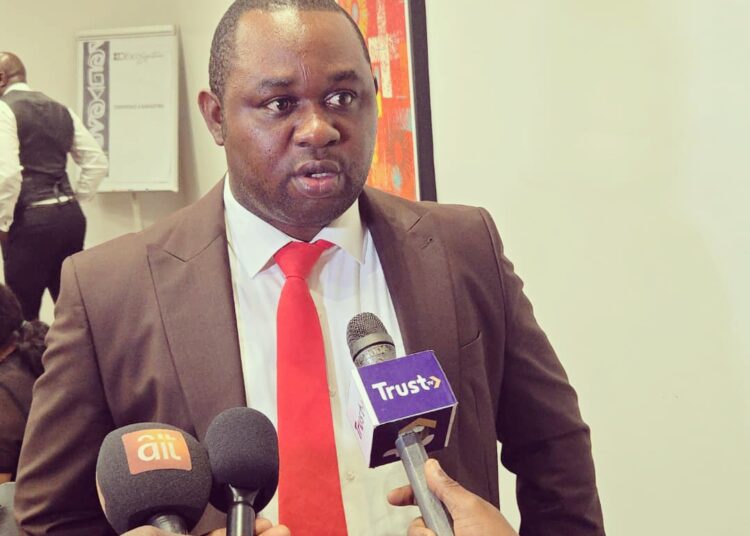In a time when Nigeria faces mounting economic and security challenges, Eur Ing Dr. Chinedu Ogwus is emerging as a prominent voice for bold, people-centered leadership. At a prestigious event held at Eko Hotel, Lagos, he was honored with an Excellence Award by the Green Assembly, a youth-led civic organization known for celebrating transformative leadership and community impact.
The event, which drew civil society leaders, government officials, diplomats, and youth advocates, took place against the backdrop of a recent attack on military personnel, reinforcing the urgent need for comprehensive solutions to the country’s security crisis.
In his powerful acceptance speech, Dr. Ogwus outlined a multifaceted strategy to address insecurity, which he argued cannot be solved by military might alone. “Security is not just about boots on the ground,” he stated. “It’s about economic dignity, social inclusion, and creating environments where crime is not an option but an anomaly.”
At the core of Dr. Ogwus’ address was a call for the government to empower rural and urban communities through basic infrastructure, education, healthcare, and economic opportunity. He cited the Niger Delta as a case study—once rich in resources but now plagued by poverty and environmental degradation due to oil pollution.
“Where there is neglect, frustration breeds. Where there is empowerment, prosperity follows,” he said. Dr. Ogwus urged the government to create an enabling environment for businesses to thrive, especially in marginalized areas, turning previously overlooked communities into economic hubs.
Ogwus introduced a bold economic reform proposal: the provision of startup capital to jobless graduates and aspiring entrepreneurs. He highlighted the widespread ambition among Nigeria’s youth and the structural barriers that prevent them from realizing their potential.
“Many young Nigerians have ideas that could change the world—but without capital, they remain dreams,” Ogwus said. “Let’s give them the wings they need to fly.”
He also proposed a monthly post-NYSC allowance for graduates until they find employment, emphasizing that idleness among educated youth poses a serious threat to national stability. “An idle mind is the headquarters of crime,” he stated, calling on the government to rethink youth transition policies and treat economic empowerment as a matter of national security.
Dr. Ogwus further called for the establishment of government-funded rehabilitation centers for the homeless, especially vulnerable youth and elderly citizens. Citing the growing population of people sleeping under bridges in areas like Lagos Mainland, he warned of a brewing crisis fueled by neglect and rising inequality.
“Many well-off Nigerians avoid these places out of fear,” he noted. “But ignoring the suffering only delays the consequences. We must act—now.”
He described these centers as holistic institutions offering temporary shelter, vocational training, counseling, and reintegration programs that would reduce both crime rates and chronic poverty
In a nuanced critique of the government’s push to deploy artificial intelligence (AI) in security operations, Dr. Ogwus cautioned against overreliance on technology at the expense of human intelligence and trust.
“AI has its place, but it cannot replace community intelligence, empathy, or local knowledge. The soul of security lies in human connection—not machines,” he asserted.
Instead, he advocated for greater collaboration with traditional institutions, community leaders, and civil society, who, he argued, are best positioned to understand the pulse of their communities and de-escalate tensions before they erupt.
Ogwus’ remarks marked a clear departure from traditional top-down governance, offering instead a grassroots-first philosophy grounded in inclusion, dialogue, and citizen engagement.
“The Nigerian people are not the problem—they are the solution. Our job as leaders is to listen, equip, and inspire,” he said.
The Green Assembly praised Dr. Ogwus for his visionary leadership, innovative ideas, and courageous commitment to tackling structural issues. In presenting him the Excellence Award, the group described him as “a model for a new generation of Nigerian leadership—one that is driven by service, not power.”
With the 2027 general elections on the horizon, Dr. Ogwus’ rising profile and reformist platform are attracting attention across party lines. His emphasis on youth development, economic equity, and grassroots empowerment positions him as a credible advocate for national transformation.
His proposals—once seen as radical—are now gaining momentum in public discourse, especially among a young and increasingly vocal electorate that is demanding accountability and innovation from those in power.
If the applause in Lagos is any indication, Dr. Chinedu Ogwus is not just speaking to Nigeria’s problems—he’s offering a way forward.











